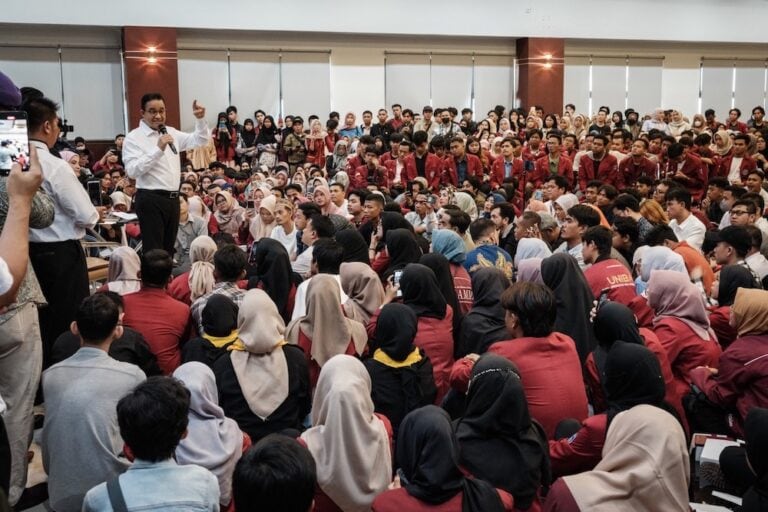According to AJI, impunity of perpetrators from legal accountability is the root of the escalating cases of violence, signifying the government's poor protection for journalists.
(AJI/IFEX) – 4 May 2011 – Indonesian journalists continue to face harder challenges – rising cases of violence combined with declining welfare. The Indonesian Press Council documented 66 case of violence against journalists in the last year.
The Alliance of Independent Journalists Indonesia (AJI) notes that violence includes damage to media offices, forced eviction and bans on reporting, lawsuits, intimidation and terror, damage to equipment, demonstrations and mass mobilization against media and journalists, and murder. The number of murder victims among the ranks of media workers has prompted the Committee to Protect Journalist (CPJ) to place Indonesia on its list of the most dangerous countries for journalists.
Few cases have seen justice served. For example, while the death of Adriansyah Qomar Wibisono Matrais in Merauke and Pelangi editor-in-chief Alfret Mirulewan, from Kisar island, North West Maluku, are under investigation, the public had been startled by the Tual State Court’s ruling last March 9 to release three defendants in the murder case of Ridwan Salamun, Sun TV contributor, in Tual. Law enforcers have not been able to solve the stabbing of freelance journalist Banjir Ambarita, in Papua.
According to AJI, impunity of perpetrators from legal accountability is the root of the escalating cases of violence, signifying the government’s poor protection for journalists. Impunity also lurks in neighboring countries, particularly the Philippines. A total of 140 murder cases have been reported in the Philippines since 1986, including the murder of 32 journalists and media workers in Maguindanao on November 2009. AJI and international press communities continue to pressure the Philippine government to solve the murder cases of the killings of media workers and provide concrete protection to journalists according to international conventions.
Besides protection, another crucial problem is the low standard of welfare. AJI’s survey in 16 cities from December 2010 to mid-January 2011 shows that some media companies give salaries below the standards of local minimum wage and in some cases journalists are not even paid salaries. They are instead told to seek their own income by becoming account executives, marketing agents or by requesting fees from their sources – in violation of the fact that Article 185 of Law No 13/2003 on Manpower provides that such practices will hold erring corporations to be liable for fines ranging from Rp 100 million (approx. US$11,660) to Rp 400 million (approx. US$46,650) and/or a jail term from one to four years.
The AJI study also found that women journalists earn wages that are lower than her male counterparts. This goes against the Universal Declaration of Human Rights which stipulates that every human being has dignity and equal rights. The same standards should apply for the distribution of income. Related to this, AJI is also concerned about the extent of sexual abuse and sexual harassment faced by many women journalists.
Many media corporations do not provide insurance for their journalists, hence leaving their families without financial protection. Women journalists suffer more from lack of insurance than their male counterparts. In some media companies, women journalists who are pregnant do not get financial support for the cost of their delivery. There is a presumption that the husband’s employer is responsible for this compensation. This is despite the fact that not all companies reimburse their married male employees for the delivery costs.
On May Day 2011, the Alliance of Independent Journalists with 29 city branches in Indonesia:
1) demand that the State guarantee the safety of journalists;
2) demand that the State bring the three suspects in cases involving violence against journalists to justice;
3) demand the State grant minimum wage to journalists;
4) demand the State to compel media corporations to provide insurance and proper safety training to journalists working in conflict-prone areas or covering risky topics on environment, corruption, election, criminal investigation and so forth;
5) demand that the State enforce an acceptable wage standard to media corporations and to enforce sanctions; and
6) call on media workers to join forces for a strong and independent union.


